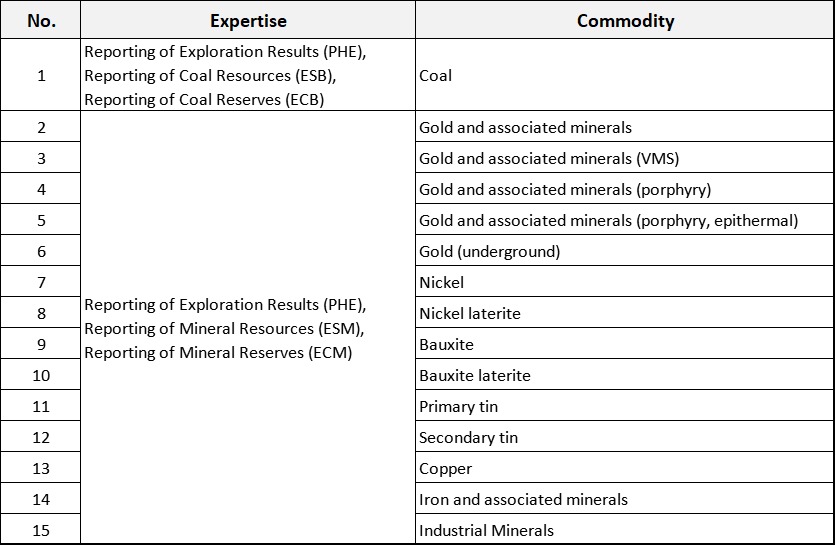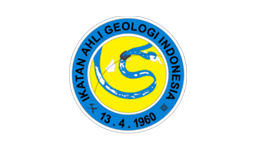
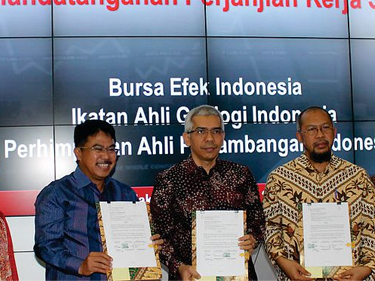
About KCMI
The Need for Accurate and Credible Reports
Initial exploration activities until infrastructure development, production expansion and mine acquisitions need sources of funds. The basis for external investors or internal shareholders of mining companies to provide funds is the status of resources and reserves that reflect investors' expectations and confidence in the possible return on investment and asset growth. For investors to make balanced and balanced decisions in the context of provision of funds or investment, the status of resources and reserves must be based on accurate and credible reporting.
The public reporting guidelines for mineral exploration, resources, and reserves (hereinafter referred to as Guides) have been implemented successfully in Australia, Canada, South Africa and the USA for a long time. Stock exchanges in these countries have long since enforced the Guidelines as part of the mine's share listing regulation, as it is believed to be able to guarantee an accurate and credible report to protect the interests of investors and stakeholders. The guidelines have also become a reference for finance and banking.
The birth of the Guidelines was basically triggered by a scandal of resource reporting and reserve maneuvers that caused tremendous losses for investors. The birth of the JORC Code (Australia) prevailing since the late 60s, triggered by the Posseidon and Cappendance Scandal CIM / NI 43-101 (Canada), which was in effect since the late 90s, was sparked by the Busang Scandal.
In September 2011 the Joint Committee of KCMI whose members are PERHAPI and IAGI, through the National Convention gave birth to the Indonesian Mineral Reserve Committee Code (KCMI): 2011. It is expected that the Code adopted from the JORC Code 2004 can serve as a public reporting guide for exploration, resource and mineral reserves in Indonesia; and able to protect the interests of investors and stakeholders.
Since its introduction at the end of 2011, the recognition and acceptance of the KCMI Code: 2011 is widespread and encouraging, as can be seen from:
- The Indonesia Stock Exchange (IDX) in Regulation I-A.1, effective from 1 November 2014, acknowledges the statement of mineral reserves signed by Competent Person Indonesia (CPI) working under the KCMI Code: 2011; where the statement of reserves is used as the basis for mining companies that will list their shares on the Stock Exchange.
- Director General of Mineral and Coal in Decree No. 569DJB / 2015 requires that since April 2017, the reporting of exploration results, mineral resources and mineral reserves shall refer to the KCMI Code and be signed by the CPI.
- Several mineral and coal mining companies have used the KCMI Code: 2011 as a guide for reporting resources and reserves.
The principle of Materiality Competency Transparency
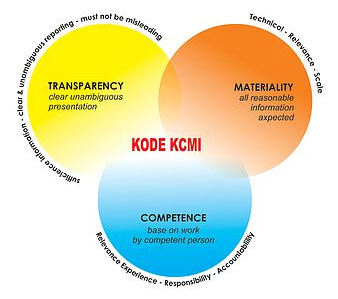
Reporting referring to KCMI Code: 2011 and other Guides that have been successfully implemented in that world are based on the principle of Transparency - Materiality - Competence Platform, which can be explained as follows:
- Transparency Principle Requires that in order to understand the report, the reader of the Public Report is treated with sufficient information with a clear presentation and does not provide a confusing understanding, and the report reader is not misled.
- Materiality Principle requires the Public Report contains all relevant information that is reasonably required by the investor and his professional advisor; and the information is expected to be in the report; in the context of making appropriate and balanced decisions related to the reported Exploration Results, Mineral Resources or Ore Reserves.
- Competent Principle requires that the preparation of a Public Report based on the work that can be accounted for by someone who has the right expertise and experience, and is bound by the code of ethics and organizational rules that overshadow it.
With the application of the Transparency - Materiality - Competent Platform, it is expected that an accurate and credible report on the Exploration Results, Mineral Resources or Ore Reserves base in “KCMI” can be realized.
Who is Indonesia’s Competent Person?
The requirements to be listed as Competent Person Indonesia are as follows:
- Member PERHAPI / IAGI / MGEI
- A graduate of Mining Engineering or Geology from an accredited college
- Has had sufficient work experience in the minerals mining industry, including at least 5 years in relevant fields, related to CPI categories and skill commodities
- Have been through the verification process, organized by the Committee (Special) Implementation of the CPI
- Meet the administrative obligations as CPI
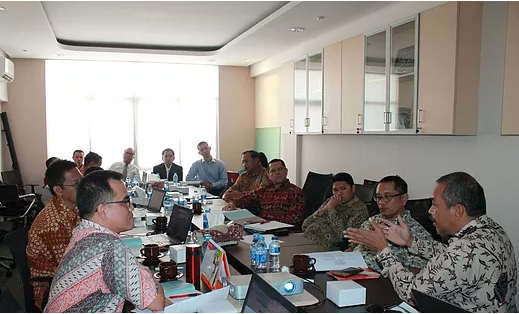
WHY COMPETENT PERSON?
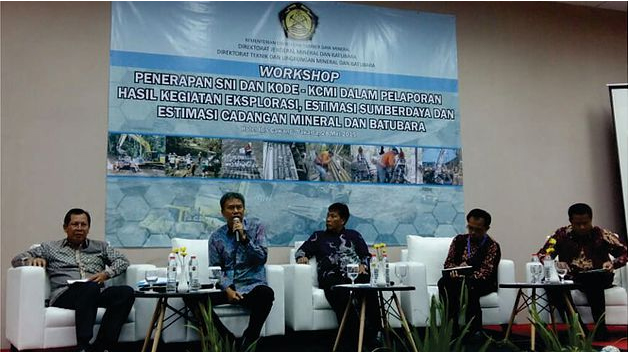
From the foregoing, it is understood that Competent Person (related to the KCMI Code, called CPI) prepares an accurate and credible Report on Exploration Results, Resources and Reserves, which can provide protection to investors if:
- The report contains all relevant information reasonably required by the investor and their professional adviser; as well as the information is reasonably expected to be present in the reporting
- The investor and his professional advisor can understand the report and not be misled because it is served with sufficient information with a clear presentation and does not provide a confusing understanding; so that investors can make the right decision and balanced (balanced judgment) associated with Exploration Results, Mineral Resources or Ore Reserve reported. The 'moral and ethical fence' which guarantees the CPI to truly have an understanding and confidence in their competence and always adheres to the KCMI Code: 2011 in actualizing its competence, is described as follows:
- The CPI is a member of a professional organization that has a code of ethics and a disciplinary enforcement system. In the case of CPI-PERHAPI, then comply with and implement PERHAPI code of ethics, as well as the object of surveillance from fellow CPI PERHAPI
- In addition to having the inherent responsibilities of each prepared and signed report, PERHAPI CPI also has an inherent liability in case of a complaint or claim on its report
- CPI works in the 'relatively small' mineral and coal mining community, so that good and bad information about CPI is concerned will spread quickly
- There is an obligation for the CPI to constantly update their competencies, so that they are always capable of implement the latest and proven methods in actualizing their competencies
The CPI should be more cautious and prudent in preparing reports, as in the end there will be an advanced mechanism that ensures the report. accurate and credible, among other peer reviews by other CPIs, second opinions by other CPIs, review by user institution reports, review by authority, and others.
Category of Indonesia’s Competent Person:
The classification of CPI in the Competent Person Indonesia System is related to the Verification Process, as follows:
